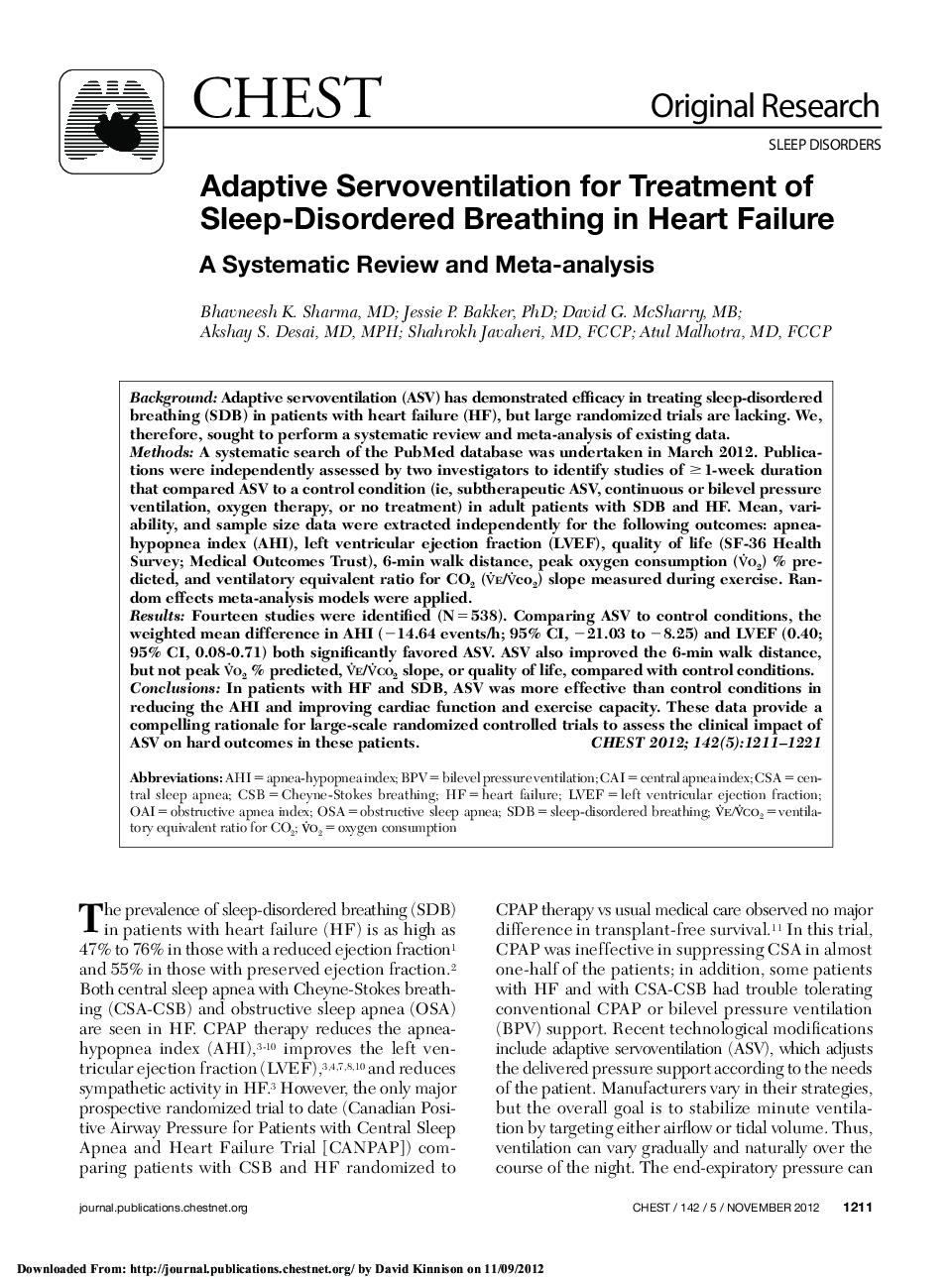| کد مقاله | کد نشریه | سال انتشار | مقاله انگلیسی | نسخه تمام متن |
|---|---|---|---|---|
| 2900992 | 1173342 | 2012 | 11 صفحه PDF | دانلود رایگان |

BackgroundAdaptive servoventilation (ASV) has demonstrated efficacy in treating sleep-disordered breathing (SDB) in patients with heart failure (HF), but large randomized trials are lacking. We, therefore, sought to perform a systematic review and meta-analysis of existing data.MethodsA systematic search of the PubMed database was undertaken in March 2012. Publications were independently assessed by two investigators to identify studies of ≥ 1-week duration that compared ASV to a control condition (ie, subtherapeutic ASV, continuous or bilevel pressure ventilation, oxygen therapy, or no treatment) in adult patients with SDB and HF. Mean, variability, and sample size data were extracted independently for the following outcomes: apnea-hypopnea index (AHI), left ventricular ejection fraction (LVEF), quality of life (SF-36 Health Survey; Medical Outcomes Trust), 6-min walk distance, peak oxygen consumption (o2) % predicted, and ventilatory equivalent ratio for CO2 (e/co2) slope measured during exercise. Random effects meta-analysis models were applied.ResultsFourteen studies were identified (N = 538). Comparing ASV to control conditions, the weighted mean difference in AHI (−14.64 events/h; 95% CI, −21.03 to −8.25) and LVEF (0.40; 95% CI, 0.08-0.71) both significantly favored ASV. ASV also improved the 6-min walk distance, but not peak o2 % predicted, e/co2 slope, or quality of life, compared with control conditions.ConclusionsIn patients with HF and SDB, ASV was more effective than control conditions in reducing the AHI and improving cardiac function and exercise capacity. These data provide a compelling rationale for large-scale randomized controlled trials to assess the clinical impact of ASV on hard outcomes in these patients.
Journal: Chest - Volume 142, Issue 5, November 2012, Pages 1211–1221